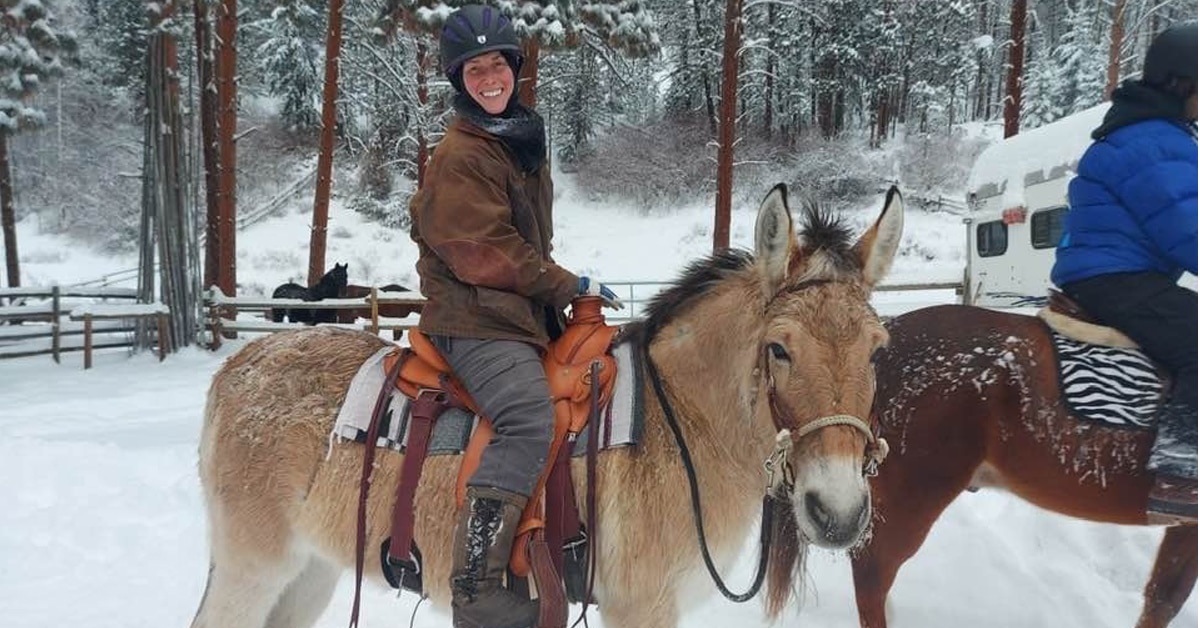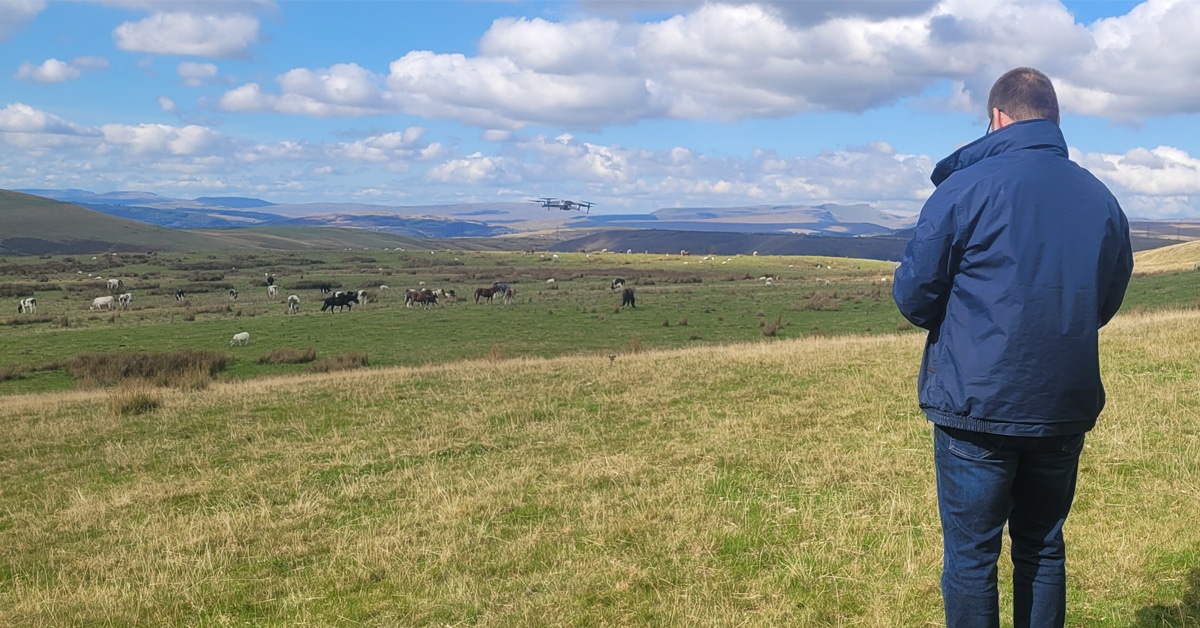Last month, Veterans Affairs Canada announced a major funding initiative called the Veteran Family Well-Being Fund. Included in this latest round of funding is a program called “Breaking the Cycle: The Family Program” run by Alberta’s equine therapy organization, Can Praxis. The funds will be used to develop and run Can Praxis’s new family program for veterans diagnosed with an Operational Stress Injury such as PTSD. This could be a game-changer for equine therapy in North America; the pilot project is set to run for three years.
Based in Alberta, Can Praxis is a collaboration between Steve Critchley, a 28-year veteran with a military and career background in conflict resolution and mediation, and Jim Marland, a registered psychologist with extensive experience in prisons, who is also an equine-assisted learning facilitator. It was founded in 2013 to treat veterans and first responders and their spouses (or other loved ones) with equine therapy. The intensive program runs in three three-day phases. The first involves theory on conflict resolution and unmounted equine-assisted learning for both the injured and their spouse. For phase two, pairs attend separately. They learn to care for and ride horses and debrief with facilitators in the evening by a campfire. The couples come together again for the final three-night pack ride through the Alberta foothills, again with evening debriefings.

Can Praxis co-founder Steve Critchley. (Steve Critchley Facebook photo)
The program was developed to specifically help veterans, first responders, and now healthcare workers who have been diagnosed with an operational stress injury such as PTSD. An operational stress injury (OSI) is any mental health injury incurred while in uniform and can include bipolar disorders, depression, anxiety, anger, as well as PTSD. “Once you’ve been diagnosed with an OSI, conflict and crisis becomes part of your daily life,” says Critchley. “It totally derails your life, your relationships, your family, everything, and it’s all centered on communication.”
To assist participants, the focus of the program is to help them relearn how to have at least one effective conversation a day. “If you can have one, you can have two, and if you can have two, then you’re set up for success,” he says.
The program defines effective conversation as how the person feels after a conversation with their spouse or partner – “if both are satisfied that they’re in a better place after the conversation compared to where they were before the conversation,” Critchley explains. “Notice I say satisfied and not happy happy. To say you’re always happy, that’s rainbows and unicorns, and that’s not real. We want it to be real.”
With conversation and communication being key, the program uses a horse’s natural skills to build confidence with the person dealing with an OSI. “Every time you stand beside a horse, you’re having a conversation. And horses are like people. There’s no such thing as loyalty. Loyalty is a nice word. It means crap. It doesn’t exist. All relationships depend on trust and respect. Completely,” he says.
With the new funding, Can Praxis is taking its well-received program to another level by helping not only the veterans and first responders, but also their children.
The new family program will be facilitated by child psychologists and family social workers. “In other words, let’s get the people who have the experience involved and not someone who’s a horse trainer,” says Critchley.
The family program will consist of phase one only and has been trimmed to a two-day course that targets children between 12-18 years old. The program will use a children’s colouring book with pictures that came from past participants and will focus on what parents want their children to know about PTSD. These will be available to any family that wants one, at no cost. “The colouring book is going to become the appropriate age workbook,” Critchley explains. “So when they leave, they’ll have reference material, a hardcopy recipe, in their hands. That way if they’re having a bad day at home, they can flip through [the book] and it’ll help remind them of how to deal with difficult situations in the home.”

Participants are also required to help with the barn chores, including feeding, turnout, and grooming. (Rayne or Shine Photography)
Critchley explains that during phase one of the program, the focus is on ground exercise, and it’s amazing what a therapist can observe when a couple and their children interact with a horse they’ve never met before. “The horses are the litmus test. We have the couple grooming a horse which is tied to the wall. The psychologist comes along and asks the question if they’re enjoying the program. The couple will rave about how much fun it is. But if you look at the horse and the horse is all braced, saying ‘Get me the heck out of here,’ then that’s telling us these people are lying through their teeth.”
The same applies when the couple do other exercises like leading a horse through an obstacle. The horse may walk through for one person, or for the child, but maybe not for another family member. It’s all part of what builds self-confidence and communication. “You can imagine what it’d be like for a little kid whose parents aren’t listening to them or who are scared of their parents,” he explains. “Going through a simple exercise with this nice Canadian Horse on a normal lead and seeing how self-fulfilling it is and confidence-building it can be when you achieve success.”
Adding to the experience is that all participants have to do the barn chores, making them responsible for cleaning stalls, feeding, turnout and turn-in, and grooming.
Can Praxis has also launched a fundraising campaign to raise $100,000 by June so that healthcare workers and other first responders who are dealing with OSI and/or PTSD from the pandemic can also take part. The program is completely free to veterans and their families, no matter what part of Canada they live in. Expenses such as flights and accommodations are fully funded.
The Latest









